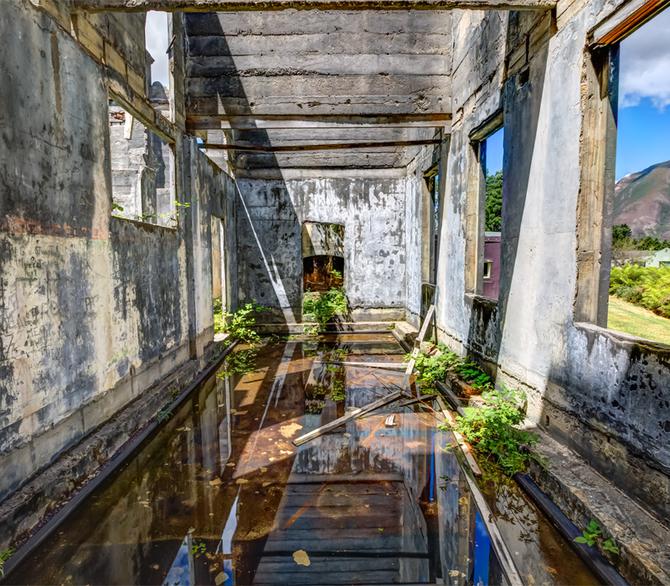While geographical disconnection has many obvious implications on daily life (for example the cost of fuel, access to certain services, ability to collaborate with peers, etc.) the impact of 'place' is also a common theme running through many discussions in the Tasmanian arts.
Distinguished Professor Jeff Malpas and Dr Ingo Farin, philosophers at the University of Tasmania, are two of several academics making these discussions more 'tangible' to a wider audience, including schools and politicians.
They and other University colleagues have contributed to the Ten Days on the Island biennial festival, including running workshops in remote communities. The Festival's thousands of varied performances not only bring international audiences and performers to Tasmanians, but also serve to celebrate the state's unique island culture - while bringing an estimated boost of $27 million to the local economy.
How we interact with landscape and different built environments is an essential element of architecture. Professor Malpas is a member of the Huon Valley Arts and Heritage Committee, providing expertise on peoples' relationship with place in the context of urban design.

People are not only been shaped by the land in Tasmania—they've shaped it as well. One of the most (in)famous examples being the west coast town of Queenstown, where mining and intensive logging in the 1900s left a stark and rocky land that's now beginning to be reclaimed by the bush. This made it a natural site for inclusion in a photography exhibition on abandoned Tasmanian industrial sites that are now giving way to nature, for which Dr Farin wrote the catalogue.
Dr Farin, whose research includes the philosophy of technology, also gave a public lecture at the opening in Queenstown.
The philosophy program at the University and the Tasmanian Writers Centre, of which Professor Malpas is a past-chair, organised to bring esteemed British philosopher and public intellectual Professor AC Grayling to Tasmania for the Writers Festival. The public talk filled Hobart's Theatre Royal.
Also:
- Starting early - philosophy in schools: Tasmanian schools are participating in the Tasmanian arm of Philosothon, a competition for philosophy students run around the country. The Tasmanian Philosothon is convened by University philosopher Dr David Treanor.
- Philosophy and Ancient History in Tasmania's curriculum: Professor Dirk Baltzly regularly served as advisory counsel to the Tasmanian Department of Education's Humanities and Social Sciences Learning Area Group. This group has developed and approved curricula renewals for a range of school subjects, including Philosophy and Ancient History.
- Humanities in the House is a bi-annual event at Parliament House, bringing together researchers and politicians to discuss big questions such as the social aspects of introducing new energy technologies, memorialising wars, and the cultural benefits of museums.
About the researchers
Jeff Malpas is Distinguished Professor at the University of Tasmania. A trained philosopher, but with a University-wide appointment, he supervises students across several disciplines including, geography, philosophy, architecture and the arts, also publishing across those same disciplines. His work is strongly grounded in post-Kantian thought, especially the hermeneutical and phenomenological traditions, although it also incorporates aspects of analytic philosophy, and is centred on the project of 'philosophical topography' – a mode of inter-disciplinary philosophical inquiry that takes place (or 'topos') as its key concept.
Dr Ingo Farin
Ingo Farin is Lecturer in Philosophy in the School of Humanities. He is currently working on Heidegger, in particular his concepts of the life-world, temporality, and history. I am also interested in the development of hermeneutical philosophy in the wake of historical thought in the nineteenth and twentieth century, particularly the historical constellation of Dilthey, Yorck von Wartenburg, Husserl, Heidegger, and Misch. Recently he has started an interdisciplinary project about the intersection of technology and landscape, with special reference to hydro-electric power stations in Tasmania.
Interested in conducting your own research? Apply now to become a research student.
Interested in partnering with the University of Tasmania? Find out more here.


